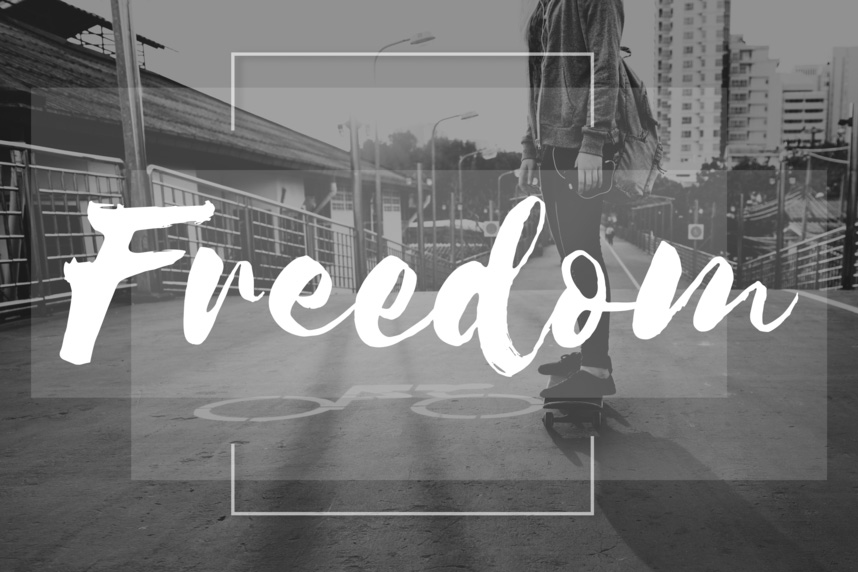
20 Feb On the Other Side of your Teenage Fears is Freedom
You’re sitting there in class, feeling somewhat uncomfortable. One of your legs is uncontrollably juddering, you feel hot and sweaty and your tummy is churning! You are supposed to be listening to your fellow students as they each present their viewpoint on a question asked by the teacher last week, but all you can think of is ways that your own presentation could go wrong. What if you forget your words? What if you start to stammer? What if the class bully picks up on something and makes your life hell on the way home?
This might not be the exact situation that gives you the heebie-jeebies, but it’s a fear that many teenagers have sleepless nights over! Maybe you get anxious about the thought of a sports competition, a maths test or a role-play scenario instead.
“The key to change… is to let go of fear.” Roseanne Cash
Big changes, big challenges, new start?
You can probably relate to one of the situations above. You’ve possibly been through it more than once. And you’ve undoubtedly come out the other side unscathed, but glad it’s over with. What an achievement. Small triumphs like this help to build your resilience and give you more confidence so that when a big change or challenge is looming, you’ll be better prepared.
Right now, are you preparing for exams or looking to start a new school, college, uni or a job? Beware of the jelly legs as the nerves set in! Whatever it is that makes you feel panicky, and a big change usually will, I’m here to let you know that it’s not unusual to feel this way. What’s even better, is that what actually follows fear is freedom, so stride on through it. Get it done! You’ll be fine.
A big change or challenge brings excitement and anticipation, but it might also bring uncertainty and anxiety because there is a fear of the unknown.
“Nothing in life is to be feared. It is only to be understood.’ Marie Curie

Have the right mindset to tackle change and challenges
Fear can manifest as anything from little butterflies in your belly to feeling horribly anxious or absolutely paralysed by your thoughts. Have you ever felt as though your head is pounding, your stomach is churning and you can’t get to sleep at night because you’re overthinking?
Let me give you a serious thought to think about…
“False Evidence [that] Appears Real”
I can hear your brain cogs turning. Fear is an acronym for ‘false evidence that appears real’. You’re lying there at night, running through the events of the future that haven’t yet happened. And might never happen by the way. You make it all seem so real, but how can you possibly know? You can’t, so why cause yourself this turmoil? You can’t hibernate from life unfolding or protect yourself from the unknown. But fear can be helpful.
Sometimes you can be made to feel wrong and judged because you worry and feel pain. When people tell you not to do this, it’s not a helpful comment unless they give you a better strategy to overcome the worry and pain. Feeling like this is normal and it is a good thing. Yes you did read that right. Fear is a good thing because every feeling is a gift of insight – even negative feelings will help to guide you. Every emotion offers a clue to the actions you need to take and fear will encourage you to make plans to avoid the things that you think might go wrong.
“Each of us must confront our own fears, must come face to face with them. How we handle our fears will determine where we go with the rest of our lives. To experience adventure or to be limited by the fear of it.”Judy Blume
Recognise feelings of uncertainty
Tomorrow hasn’t yet arrived so it makes no sense to worry about it. The only thing you can control are your own thoughts. Can you remember BOB? If you need to remind yourself of Bob, or to learn about him, find him here. Take control back by paying attention to your thoughts.
When you start to recognise feelings of uncertainty about the future it’s your mind’s way of telling you to prepare. The key to settling your fears and feeling more certain is to have a least six options in case something goes wrong. If you have just one option you have a problem. If you have two options you have a dilemma. If you have three options then you’re getting there.
What is worrying you right now?
Let’s get some context around the fear of the unknown by doing an exercise. Take out the notebook or electronic document you have used to take notes when following this blog series and consider the following questions.
- What is the main thing bugging you right now because you’re uncertain about its future?
- If you could choose to create a positive outcome for this situation, what would it be?
- How would you feel? (It might help you to think about your situation as a blockbuster movie).
- How would you write a happy ending?
- Is the thing you’re anxious about in your control? Remember, you cannot control the outside world.
- If the answer is yes, list five ways to make the outcome less worrying or fearful.
- Think about what you need to do to get ready. What do you need to organise? Find out?
- Are there times, routes, or access information you need to source?
You will usually feel anxious because you don’t feel ready yet. If the situation that’s worrying you is not in your control, can you internally control the story you tell yourself about the outcome? The answer is yes…
- You can do this by creating five positive new meanings for the situation you fear. As an example, if you are starting a new school, college, uni or a new job…
- Do you feel anxious because you think you won’t fit in? Do you worry about no-one liking you?
- You know what? You might not fit in, but might stand out for all the right
- What if you make new friends? What if you find someone who feels the same as you do and you both fit in together? If you are ready to learn and grow, you will find your way and won’t ever need to worry about not fitting in.
“Worry never robs tomorrow of its sorrow, it only stops today of its joy.” Leo F Buscaglia
Choose the life you want to lead
Try out this exercise when you come to a situation or thought that worries you. Create new possibilities and be creative. I promise you that this will empower you. This thought process will allow you to grow through change rather than suffer through change.
Challenge change and decide today to have the courage to live life on your terms. Courage is not the absence of fear, but the ability to face the fear, see it for what it is, and take action. The other side of your teenage fear is freedom. Being fearless is ‘fearing less’. Head over to the Spark to your Success podcast series and soak up all richness of the exercises and advice given. Until next week, face your fears, plan to remove uncertainty and make everything work for you. I’ll see you on the other side of fear. Stay amazing!
Connect with me to ask questions and share your thoughts via email or on Instagram, Facebook, or Twitter or leave your comments below.


No Comments